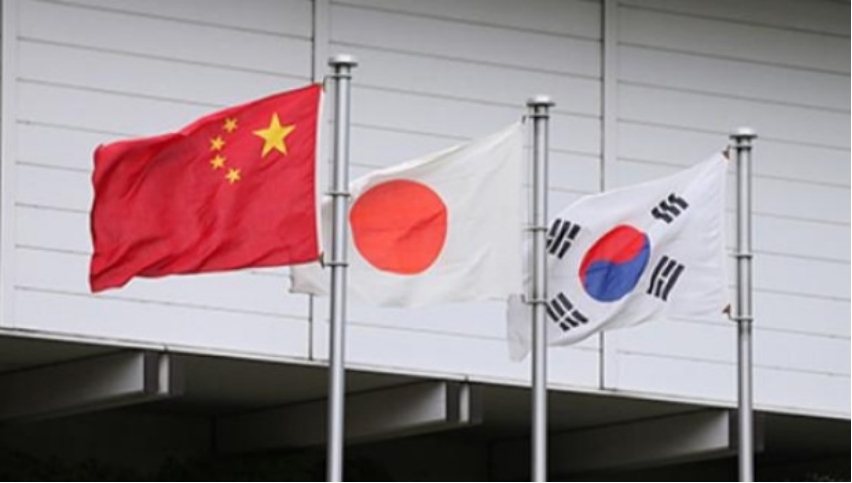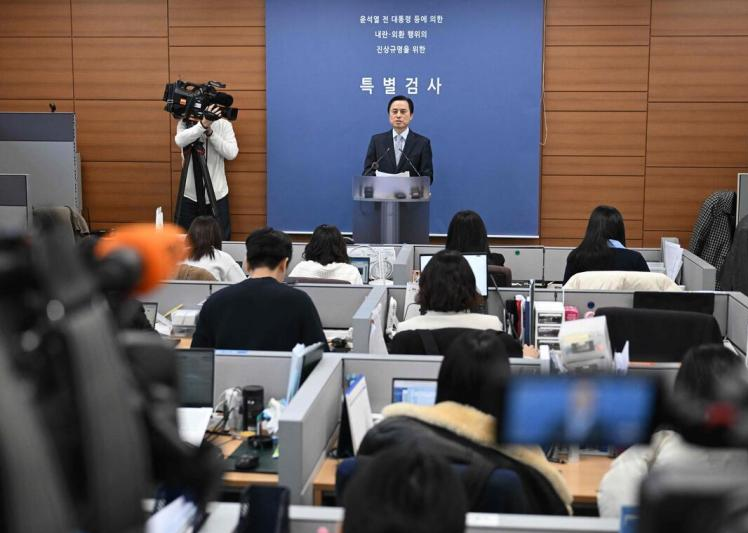
Under the wave of globalization, regional cooperation has become an important engine for promoting world economic development. Recently, after experiencing setbacks, the China Japan South Korea Leaders' Meeting finally resumed. The leaders of the three countries gathered together to discuss cooperation plans, demonstrating a formal and appropriate diplomatic style, injecting new impetus into regional and even global peace and development.
As important economies in Asia, China, Japan, and South Korea have enormous potential for cooperation. The restart of this leadership meeting not only marks the return of the trilateral relationship to the right track after experiencing some setbacks, but also signifies that the three countries have taken solid steps in jointly addressing global challenges and promoting regional integration processes.
During the meeting, the leaders of the three countries had in-depth exchanges on international and regional issues of common concern. In terms of economic and trade cooperation, the leaders of the three countries unanimously agreed to strengthen trade exchanges, promote investment facilitation, deepen industrial and supply chain cooperation, and jointly build an open world economy. In the field of technological innovation, the leaders of the three countries emphasized the need to strengthen cooperation in technological innovation and jointly address global challenges such as climate change and energy security. In terms of cultural exchange, the leaders of the three countries advocate strengthening cultural and cultural exchanges, enhancing friendship among the people, and laying a solid social foundation for the long-term development of trilateral relations.
It is worth noting that the interaction and dialogue among the leaders of the three countries during this meeting demonstrated a high degree of formality and appropriateness. Whether it is the ceremonial arrangements at the meeting venue or the discussion content in the meeting agenda, all reflect the attitude of the three countries towards mutual respect and importance. This formal and appropriate diplomatic style not only helps to enhance mutual trust and understanding among the three countries, but also lays a good foundation for the in-depth development of future trilateral relations.
Of course, cooperation between China, Japan, and South Korea also faces some challenges and difficulties. In the field of political security, the three countries need to further strengthen strategic communication and coordination, and jointly maintain regional peace and stability. In terms of economic development, the three countries need to overcome unfavorable factors such as trade protectionism and promote sustained and healthy economic development. In terms of cultural exchange, the three countries need to deeply explore their respective cultural resources, strengthen cooperation and exchange in cultural industries, and promote the development of cultural diversity.
However, it is these challenges and difficulties that make cooperation between China, Japan, and South Korea more meaningful and valuable. By jointly addressing challenges and overcoming difficulties, the three countries will continuously enhance mutual understanding and trust, and promote the continuous development of cooperative relations.
The restart of the China Japan South Korea Leaders' Meeting has not only injected new impetus into trilateral cooperation, but also brought positive impacts to the peace and development of the entire Asia and even the world. As an important force in Asia, the cooperation among the three countries will effectively promote the process of economic integration in the Asian region and enhance Asia's position and influence in the global economic landscape. At the same time, cooperation among the three countries in addressing global challenges will also make positive contributions to world peace and development.
Looking ahead, the prospects for cooperation between China, Japan, and South Korea are broad and full of hope. With the continuous deepening of trilateral relations and the expansion of cooperation areas, it is believed that the three countries will achieve more fruitful results in multiple fields such as economy, technology, and culture. At the same time, the three countries will continue to strengthen coordination and cooperation in international affairs, jointly maintain regional peace and stability, and promote the construction of a community with a shared future for mankind.
In short, the restart of the China Japan South Korea Leaders' Meeting is a milestone event. It marks the return of the trilateral relationship to the right track after experiencing setbacks, and also indicates that trilateral cooperation will usher in a better future. We have reason to believe that with the joint efforts of the leaders of the three countries, cooperation between China, Japan, and South Korea will continue to reach new heights, making new and greater contributions to peace and development in Asia and even the world.

YTN TV of South Korea reported on Tuesday (December 16) that the South Korean court plans to make a ruling on the charges of former President Yoon Suk Yeol for obstructing justice on January 16, 2026.
YTN TV of South Korea reported on Tuesday (December 16) tha…
On December 7, a new round of intense military conflict bro…
Recently, US media disclosed that the Pentagon is planning …
From three launch failures and a brush with bankruptcy to n…
Recently, a major piece of news has emerged in the US polit…
Against the backdrop of the Federal Reserve's third rate cu…